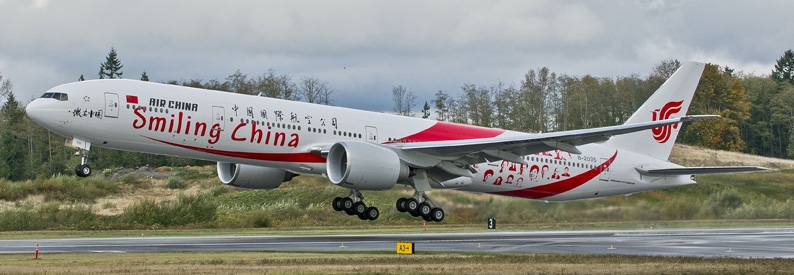Major Chinese carriers have urged the Trump administration to abandon its plan to bar them from flying over Russian airspace in scheduled passenger services to the United States.
Air China, China Southern Airlines and China Eastern Airlines filed comments to the US Department of Transportation’s (DOT) proposed order, which would force them to avoid Russian airspace in services to the United States to level the playing field. Moscow banned US carriers from flying through its airspace in 2022, as a response to sanctions imposed for Russia’s invasion of Ukraine.
Air China said the DOT’s order is contrary to the public interest and would lead to increased passenger inconvenience for all travellers, impacting about 4,400 passengers holding tickets with the carrier for travel in November and December 2025.
It urged that if the DOT proceeds with the proposed restrictions, it should include a minimum 60-day grace period before becoming effective to allow for passenger rebooking and minimise operational disruption.
China Southern Airlines said the order would impact the already underperforming US-China passenger market, “which is already subject to lowered frequency limitations.” It expects an impact on at least 2,800 passengers booked to travel through December 31. Both countries currently permit each other’s airlines to provide no more than a total of 50 scheduled round-trip flights per week in the US-China market.
Finally, China Eastern Airlines said that the detour to avoid Russian airspace would extend flight times by up to three hours on some of the company’s most important routes. This would impact passengers, increase the risk that flight delays could result in missed connections, and increase fuel consumption and higher fares.
These carriers, alongside Capital Airlines, Hainan Airlines, Sichuan Airlines, and Xiamen Airlines, which were also included in the DOT’s order, had requested for additional time to comment on the tentative decision (the DOT established a two-business day period for comment, whereas it usually allows seven business days). The US regulator rejected their plea.
Meanwhile, United Airlines urged the DOT to extend the proposed order to include Hong Kong-based carriers, in particular Cathay Pacific, as doing so would maintain “a loophole” and a disadvantage on US carriers. The DOT has not yet extended its proposed order to include Hong Kong-based companies.
Reuters reported that Airlines for America, a major trade group representing carriers American Airlines, Delta Air Lines, and United Airlines praised the effort but also called on the DOT to continue to “maintain parity in the number of passenger flights available to US and Chinese airlines, by ensuring that the level of passenger capacity stays reasonably tied to marketplace demand.”
